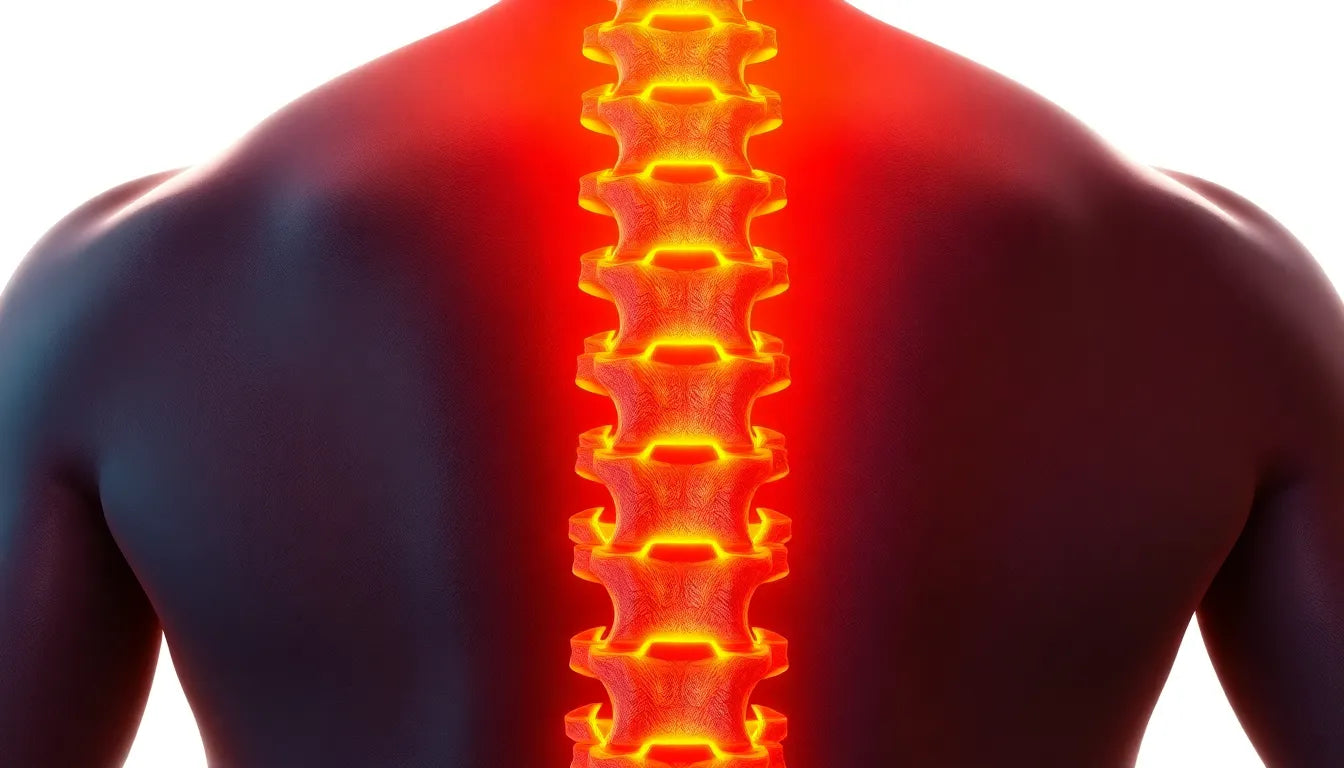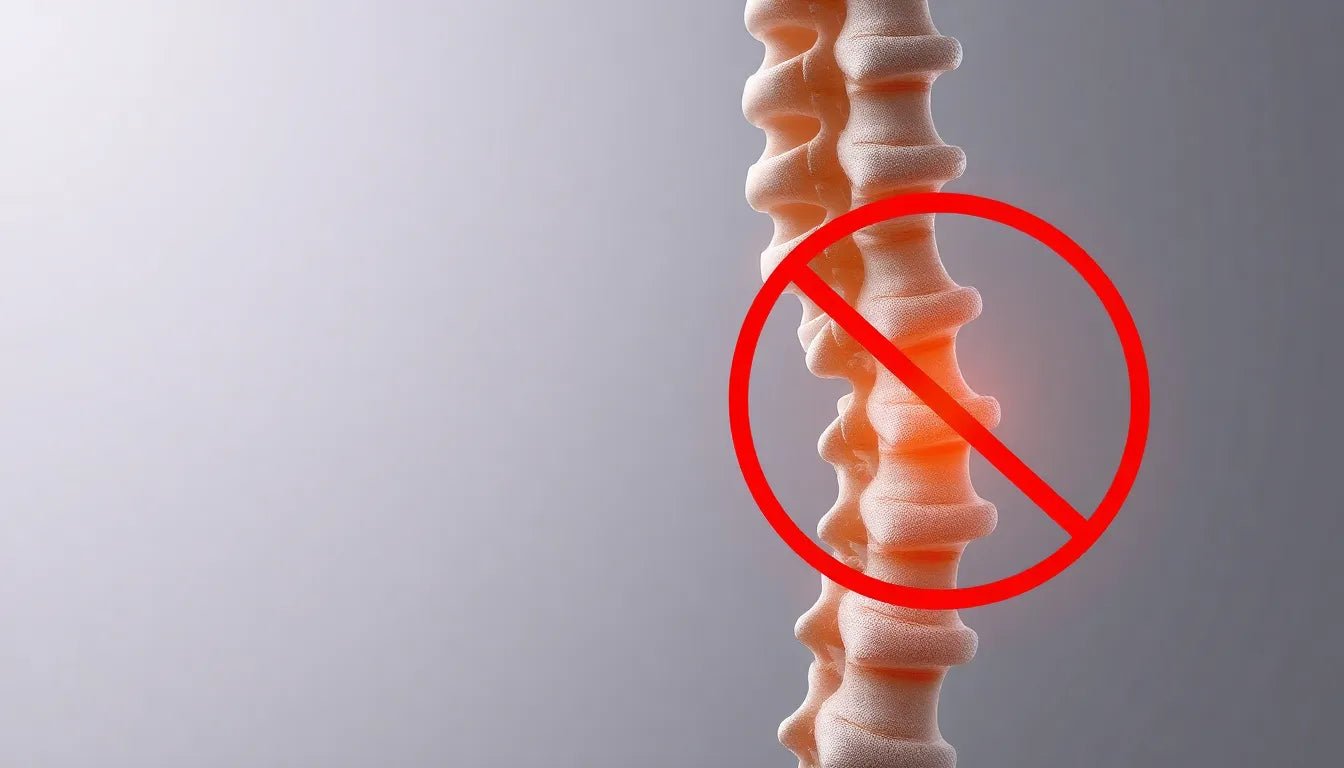Herniated discs are a common concern among adults, affecting many and causing significant discomfort and limitations in daily activities. Understanding what makes a herniated disc worse is crucial in preventing further pain and complications. With this knowledge, individuals can take proactive steps to manage their condition and improve their quality of life.
understanding herniated discs
A herniated disc occurs when the soft, gel-like center of a spinal disc pushes through a crack in its tougher exterior casing. This can irritate nearby nerves, leading to pain, numbness, or weakness in an arm or leg. Common causes include age-related wear and tear, improper lifting techniques, and sudden twists or strains. Symptoms can vary, but often include back pain, leg pain, and tingling sensations.
While some factors contributing to herniated discs are beyond our control, such as aging and genetic predisposition, many lifestyle habits can be managed to prevent exacerbation. Recognizing these habits and making conscious changes can significantly impact the progression of the condition.
purpose of understanding aggravating factors
The purpose of this post is to educate readers on the habits and factors that can make a herniated disc worse. By highlighting these elements, we aim to empower individuals to make informed lifestyle changes that can reduce the risk of further injury and improve overall spinal health. Whether it's adjusting daily activities, improving posture, or adopting healthier habits, understanding these factors is the first step towards effective management and prevention of worsening symptoms.
In the following sections, we will delve deeper into specific activities and lifestyle choices that can aggravate a herniated disc, offering practical advice and strategies to mitigate these risks. By focusing on modifiable factors, readers can take control of their health and work towards alleviating the discomfort associated with herniated discs.
physical strain and activities
Engaging in activities that place excessive strain on the spine can significantly worsen a herniated disc. Repetitive bending, twisting, and heavy lifting are among the most common culprits. These actions increase pressure on the spinal discs, potentially aggravating an existing herniation. It's crucial to adopt proper lifting techniques, such as using your legs instead of your back, to minimize this risk.
- Occupations involving heavy lifting or repetitive movements, such as construction work or warehouse jobs
- Sports that require frequent twisting or bending, like golf or gymnastics
- Household chores involving heavy lifting or awkward postures
sedentary lifestyle and poor posture
A sedentary lifestyle, often characterized by prolonged periods of sitting, can exacerbate a herniated disc. Poor posture while sitting increases pressure on the spinal discs, leading to further discomfort. Maintaining good posture and incorporating regular movement breaks can alleviate this pressure.
| Posture | Impact on Spinal Health |
|---|---|
| Slouched sitting | Increases pressure on discs, worsening symptoms |
| Upright sitting | Reduces disc pressure, supports spinal health |
| Standing with weight evenly distributed | Minimizes strain on discs |
obesity and its impact on spinal health
Carrying excess body weight can put additional strain on the spine, making it more challenging to manage a herniated disc. This added pressure can lead to increased pain and a higher risk of further disc damage. Maintaining a healthy weight through balanced nutrition and regular exercise can help reduce this strain and support spinal health.
smoking and spinal degeneration
Smoking is detrimental to spinal health as it reduces blood flow to the spinal discs, accelerating their degeneration. This not only makes recovery from a herniated disc more difficult but also increases the likelihood of further deterioration. Quitting smoking can significantly improve overall health and aid in the recovery process.
aging and disc degeneration
The natural aging process contributes to the weakening of spinal discs, making them more susceptible to herniation. As we age, the discs lose hydration and elasticity, increasing the risk of injury from minor strains. While aging is unavoidable, focusing on modifiable lifestyle factors can help mitigate its impact on spinal health.
genetic predisposition
Genetic factors can also play a role in the likelihood of developing or worsening a herniated disc. While you can't change your genetic makeup, being aware of your family history can prompt proactive measures to manage other risk factors effectively. Concentrating on lifestyle changes can help reduce the impact of genetic predispositions.
lifestyle modifications for herniated disc management
Taking proactive steps to modify your lifestyle can significantly help in managing a herniated disc and preventing its worsening. Regular exercise, ergonomic adjustments, and mindful movement practices are essential components of this approach. Incorporating low-impact exercises such as walking, swimming, or cycling can strengthen core muscles, providing better support for the spine. Additionally, practicing yoga or Pilates can improve flexibility and posture, further reducing spinal strain.
Ergonomic adjustments at work are equally important. Ensure your workspace is set up to promote good posture, with your computer screen at eye level and your chair adjusted to support your lower back. Taking regular breaks to stand and stretch can also help alleviate pressure on the spinal discs.
preventive measures and daily habits
Adopting specific exercises and daily habits can play a crucial role in preventing the worsening of a herniated disc. Focus on exercises that strengthen the core, such as planks and bridges, which provide essential support to the spine. It's also advisable to avoid high-impact activities and exercises that involve heavy lifting or twisting motions, which can exacerbate the condition.
Here is a checklist of daily habits to adopt for spinal health:
- Maintain a healthy weight through balanced nutrition and regular exercise.
- Practice good posture while sitting, standing, and lifting.
- Incorporate regular, low-impact physical activity into your routine.
- Use ergonomic furniture and tools to support spinal alignment.
- Stay hydrated to maintain disc health.
- Quit smoking to improve blood flow to spinal discs.
conclusion
Addressing modifiable risk factors is essential in managing a herniated disc effectively. By making informed lifestyle changes, such as maintaining a healthy weight, practicing good posture, and engaging in regular exercise, individuals can significantly reduce the risk of further injury and improve their overall spinal health. Understanding the habits that worsen a herniated disc empowers individuals to take control of their condition and work towards a pain-free life.
Frequently Asked Questions
What activities should I avoid with a herniated disc?
Avoid heavy lifting, repetitive bending, and high-impact sports. Focus on low-impact exercises and proper lifting techniques.
Can a herniated disc heal on its own?
Some herniated discs may improve with time and conservative treatment, but severe cases may require medical intervention.
How does posture affect a herniated disc?
Poor posture increases pressure on spinal discs, worsening symptoms. Maintaining good posture reduces strain and supports healing.
Is surgery necessary for a herniated disc?
Surgery is typically considered when conservative treatments fail, and symptoms significantly impact quality of life.
How can I prevent a herniated disc from worsening?
Focus on maintaining a healthy weight, quitting smoking, practicing good posture, and engaging in regular, low-impact exercise.
Sources
- Dr. Fanaee. "Risk Factors for Herniated Discs."
- Cleveland Clinic. "Herniated Disk: Causes, Symptoms, and Treatments."
- Riverhills Neuroscience. "Managing Herniated Discs: Risks and Prevention."
- Dr. Gentile. "Preventing Herniated Discs: Lifestyle and Risk Factors."
- MW Sports & Spine. "The Impact of Age and Lifestyle on Herniated Discs."
- Physiopedia. "Biomechanics and Management of Herniated Discs."























